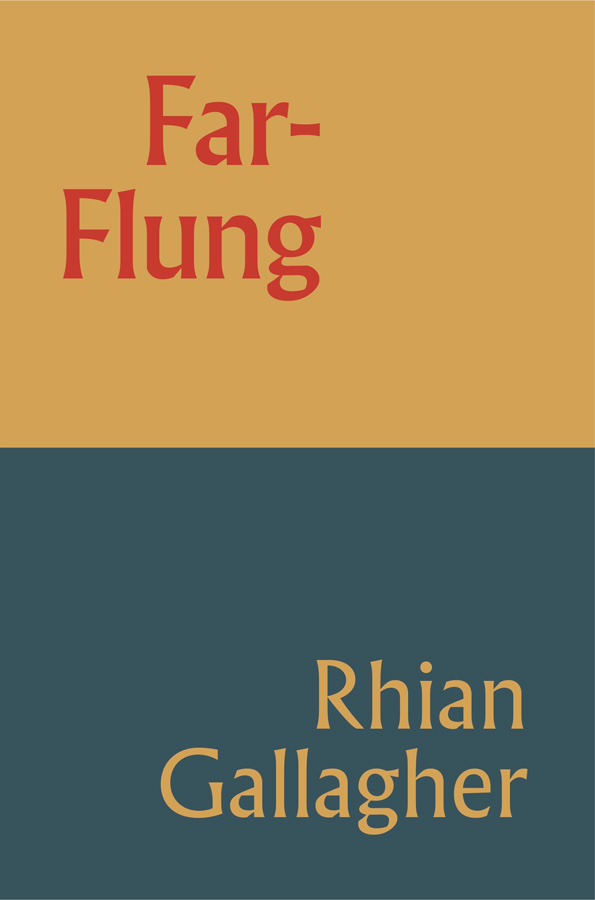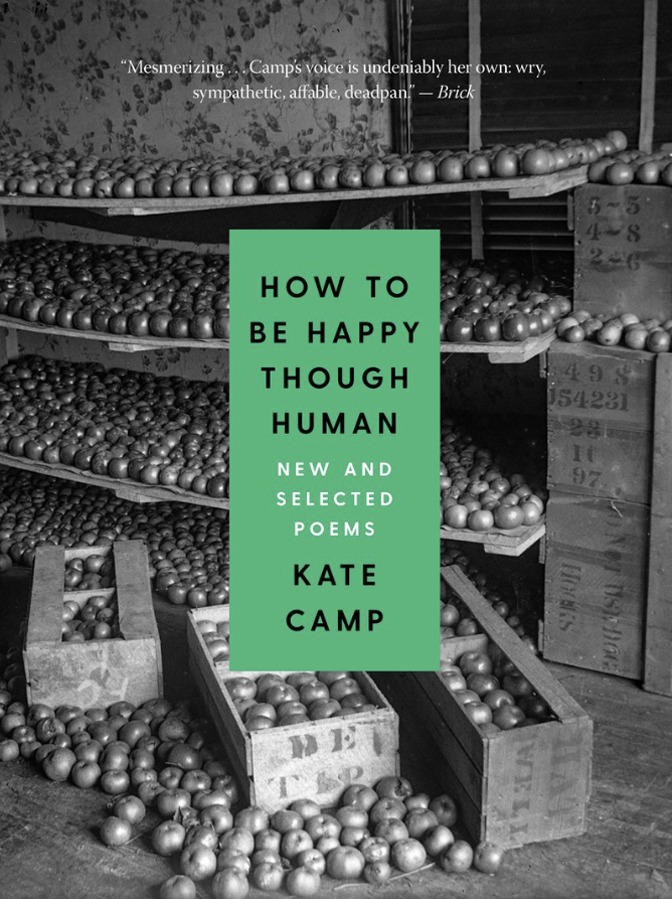Rhian Gallagher’s third collection of poems, Far-Flung, is a book of two halves: the first half is a distillation of specific landscapes into lyrical poems; the second part is a process of uncovering the mysterious hinterland we call the past through researching the writings of others. Her focus is on North Otago, and South Canterbury: where she lives lives now, and where she grew up. The title of the book invokes notions of movement, of distance, and ultimately a suggestion of a stone catapulted from a shanghai – or perhaps the world, the planet, hurtling through space, orbiting the sun. ‘Far-flung’, too, brings us to the notion of settler culture and migration, those topics of endless navel-gazing absorption for our national literature.
Displacement, unsettlement, exploration, if these are the themes brought to mind by the book’s title, what makes the collection lively are the shifting, subtle registers of the poems themselves. Summoning up her childhood environment on a farm near Timaru, Gallagher conveys plenitude of place, recollected Wordsworth-like in memory, as textures, feelings, the taste of dust swirling on the wind.
For Gallagher, the landscape is refracted autobiography, or a kind of self-portrait, registering states of mind. Living in Dunedin and exploring bush walks north of the city, a keen tramper and amateur botanist, she renders physicality through a kind of deftly woven verbal musical brocade. Her poems are chamber pieces, as in ‘Salt Marsh’:
past crab burrow to ghost shrimp and worm
sparkling in the wet
catacombs of vitality, so busy down there,
small mouths on which this world leans …
or as in ‘Normanby’:
– and a dust cloud
rolls in the wake and the gulls agitate
and the small birds follow in the flung seed-spree.
A New Zealand nature poet, perhaps even nature mystic poet, she is in the tradition of Ursula Bethell, Peter Hooper, Ruth Dallas and Cilla McQueen. Gallagher interprets the world by walking over it; her ears register the vibrations of bird calls, her eyes the play of light, her hands the touch of bark and leaf. The end result is a kind of elation, a lyricism seeking after enlightenment, illumination, understanding. The titipounamu (rifleman) is observed busily tapping trees ‘as if she will find the key one day … all of the secrets of the beech forest/ bursting free.’ (‘Titipounamu Tapping the Beech Forest’). At the same time, the poet is alert to environmental changes and damage: ‘the river slips from the fish/ perishing’ (‘Mackenzie Country’).
Formerly self-exiled, and then returned as an expatriate, something she wrote about in her previous collection Shift, Gallagher explores landscape with a kind of double perception, an understanding of cultural relativism:
leaving home long enough to be a stranger
sets a yearning in motion
while those who stay
never think of home.
(‘The Roost Trees’)
When you travel, you are constantly translating. Returning, she writes as one keenly aware of the dialect of the tribe. She is not alienated from the vernacular, but distanced. In ‘Country Hall’ she remembers the communal spirit of her childhood:
the hall
lit up like a liner
in a sea of paddocks, the country dark
turning stars into an anthem
warbling and symphonic.
One can perhaps trace the origins of Gallagher’s full-bodied immersion in nature, her sensuous prostration at the altar of landscape, in her Roman Catholic upbringing. Certainly, her poems convey a sense of her early childhood as a time of innocence, prelapsarian, striving after a state of grace, and subject therefore to a kind of spiritual dread:
Mixed with the spirit and drunk
in a toast, mixed with the air
made a mist and that was the face
of the Holy Ghost …
(‘What You Knew About Water’).
The stormy weather described in her poem about the time of the Wahine ferry disaster. ’10th April 1969′ is positively demonic: ‘the waves breaking into my dreams’.
The first section of Far-Flung is titled The Speed of God, while the second section is called Seacliff Epistles, and this is centred on the early years of the Seacliff Lunatic Asylum (later Seacliff Mental Hospital, eventually closed because of ground subsidence) in North Otago. Gallagher also writes a bit about this locale in the first part of the book, with the hills of ‘the Kilmog slumping seaward … the highway/ doesn’t want to lie still’, and the old Seacliff school building where she lived for a time ‘pretending to be a writer’.
A number of poets have lived in and written about the small coastal settlement of Seacliff, including Joanna Paul, Peter Olds and Michael O’Leary, having found its psychogeography fascinating. In Seacliff Epistles, Gallagher’s strategy is to ventriloquise the voices of some of the incarcerated inmates of the old asylum, to acknowledge and commemorate them as particular individuals by recasting diaries, letters and the reports in historical texts into poems. Beyond this, she channels their sense of despair, or their spirited defiance, or their stoic resignation, as a way of exploring the early settler mindset, the repressions and strictures of Victorian morality, the power structures of a transplanted class consciousness, and in particular the fragile, persecuted status of poor Irish migrants: ‘immigrants from lowly backgrounds’, as they were described.
There are fleeting references, too, to the great panjandrums of the time, including Truby King, who recruited domestic servants from those who had been detained as ‘insane’. Struggling against straitjackets both figurative and literal, inmates such as ‘Maeve (‘them church ladies praisin me efforts’) and Agnes (‘shipped/ from the workhouse, wretched’) are given voice, ‘not heroine pioneers// but perplexed, peripheral, raging// the wild Irish workhouse girls.’
Imagining the musty, mouldy air of locked rooms and attics of the gigantic asylum, its atmosphere still alive in cultural memory and heritage, if also thoroughly razed several decades ago by bulldozers and demolition, Gallagher is rewarded for her creative scrutiny – ‘harvesting details like a detective’ – by poems of remarkable resonance. In ‘The Asylum Keys’, she asks: ‘What happened to the keys? More than a thousand keys … The thistledown knows more than I … the asylum/ locking me out … I listen.’
When God has vacated the building, we don’t necessarily have paganism and hedonism; we have, it seems, a duty of preservation and observance of hand-me-down pieties, albeit in secular form. After all, we are all eclectics now, cobbling together patchwork value systems and bricolages of convictions. If Rhian Gallagher is something of a solitary, a spiritualised, inward-turning poet in the Gerard Manley Hopkins mould, Kate Camp in How to be Happy Though Human: New and Selected Poems, with its numerous shout-outs, seems something of a salon writer, a coterie writer, associated with the clubbable and tribal Wellington school.
As with Rhian Gallagher’s book, the title of Kate Camp’s book is a signpost. As a collection, these poems are suffused by melancholy, a traditional property in poetry – witness ‘Ode to Melancholy’, by John Keats – but Camp’s is a melancholy tempered by comedy, or droll comic effects. Kate Camp is a poet both enchanted and disenchanted by human foibles and behaviours, and her poems are able to expertly skewer or dissect our everyday shibboleths and most cherished clichés, deriving, as so many of our aspirations do nowadays, from consumerism’s coaxings and blandishments:
The ordinary can be miraculous
if it happens often enough.
(‘Don’t get me started’)
Like any good sceptic, Kate Camp questions everything:
Why preserve one’s childhood memories?
So, like the Egyptians they might be packed into the grave?
…
Everything is small enough already
and there is too much too much of everyone.
To understand your life you need another whole life.
(‘Snow White’s Coffin’)
Camp’s poems, then, are aphoristic, dialectical, knowing. They nod to irony, anomie, solipsism, as if to close friends. They stop to flirt with New Age psychobabble, clinical psychology jargon and Zen koans, before moving on to obliquely quote New York School poets and lowbrow TV sitcoms:
The law is, that those who love you
will not help you get better
(‘The Law of Expressed Emotion’)
and:
This would be cherry blossom time
if there were any cherry trees here
if there were any blossoms
(‘Cherry Blossom Time’)
and:
On the mower’s handle the white shapes of two animals
the tortoise and the hare
that one might know how fast to travel
using fables as a guide
(‘Lawns’).
Camp’s poems are sometimes chatty and companionable, offering confidences over the teacups, as it were:
A childhood friend lived there
in that sad apartment
facing south, her baby coughing,
she was not a good person, but still.
(‘Walking up the zig zag’)
And sometimes they are confessional, especially about the tragicomedy of the body, never quite measuring up to the Ideal, instead a constant source of vexations and ruefulness:
Standing on the field while other people’s daughters
play sport, their limbs and tragic just-appearing breasts
little lumps of fat on their chests.
(‘Female Family Annihilators’)
Dysmorphia, boundary issues, stress, domestic order and disorder, Camp is a clever crafter of telling or telltale vignettes moments, plucked spasmodically from the great quotidian mundane, with a special interest in the grotesque and the macabre. At times, it’s as if she’s talking for victory, talking to win the match point, but also not afraid of the epic fail, for that too will provide an excellent miserabilist comedy routine, expertly rerouting a transgressive or aggressive stance with the skilful feints and cape twirls of a mock-matador.
Recycling observations from multiple philosophies, from the smorgasbord of globalism and its promiscuous minglings and mirage-like promises, Camp becomes the wry laureate of the entropic, apostrophising the stuffing of our over-determined twenty-first century existences:
I am my own daughter, my own son
remembering with a shock how beautiful I was …
(‘Autumn with your rare MN‘)
In these poems, selected from her six previous volumes with the addition of sixteen new poems, tone is everything: bemused, ruminative, wistful, wise – and always I hear my malaise hurrying near. The smouldering slow burn, the curdled idealism, the salvation army assembly of humorous perceptions: a virtuoso display. Each poem’s like a bumper ride in a fairground, crashing into obstacles, at once jarring and exhilarating; leaving you dizzy but adrenalised, and, in a manner of speaking, woke, by poems pleasant and unpleasant.
This review was originally published on the Academy of NZ Literature site.




